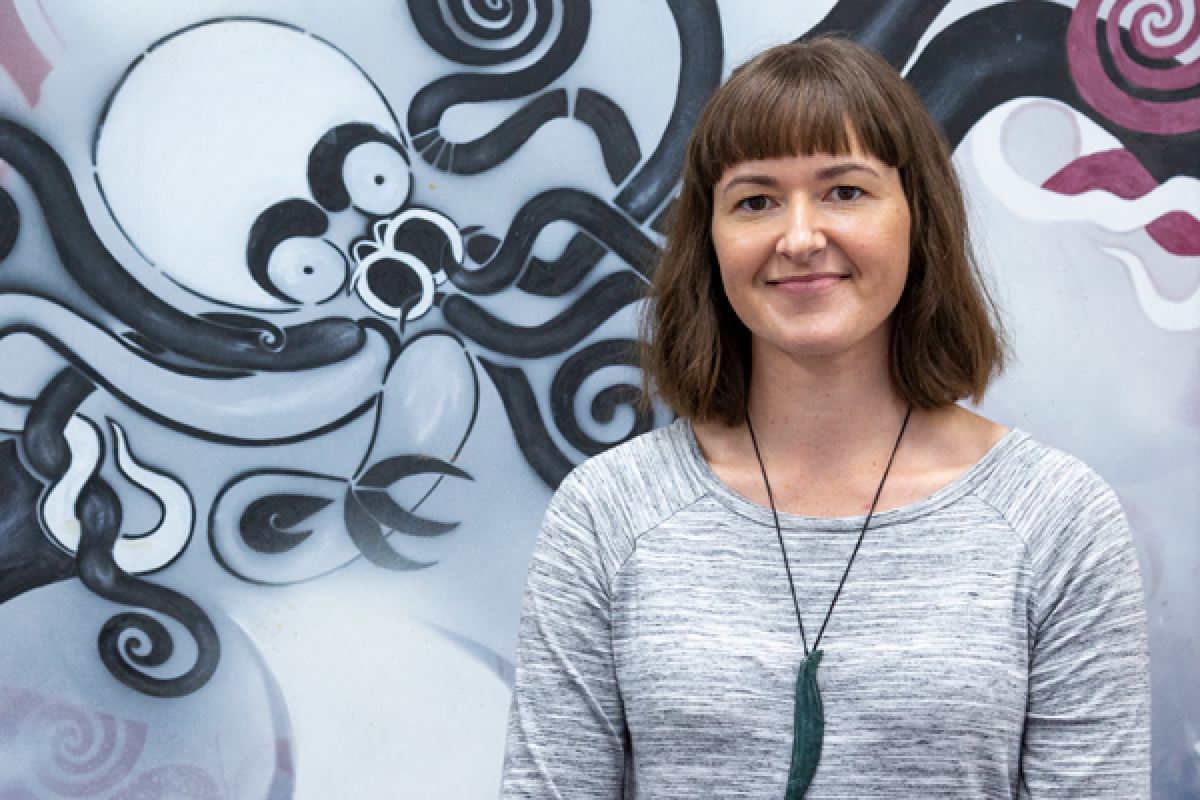The new human papilloma virus (HPV) self-test being rolled out this week in Aotearoa/New Zealand is “a powerful tool for increasing screening rates”, according to a researcher who has for the past seven years worked on Kaupapa Māori and Māori-led projects related to HPV self-testing.
Anna Adcock is a research fellow at Te Tātai Hauora o Hine – the National Centre for Women's Health Research Aotearoa, at Victoria University of Wellington. Anna is part of a team that has been working on a body of work called “He Tapu Te Whare Tangata” – the sacred house of humanity.
This name refers to the sacredness of the womb (the neck of which is the cervix) and the sacredness of Māori women, as well as everyone who has a cervix.
As part of this project, Anna has undertaken Cancer Society-funded qualitative research exploring unscreened and under-screened women’s experiences of screening with the HPV self-test, which in turn has made a substantial contribution to informing the new cervical screening programme.
Anna says the previous cervical screening programme has been failing Māori, as Māori are more than twice as likely to die from cervical cancer than non- Māori.
HPV causes nearly all cases of cervical cancers. Technological advances mean that we can now screen specifically for the HPV virus. HPV screening is more effective than cervical cytology (commonly referred to as the “smear” test) at preventing cervical cancer. Completing the new HPV self-test has proven just as effective as a trained clinician taking a sample. If HPV is not detected, most people will not need to screen again for five years.
Through a series of studies, including clinical trials and qualitative research, Anna and her team have explored the potential acceptability of the HPV self-test, including its uptake when offered, how follow-up pathways work when HPV is detected, and what those who screen with the HPV self-test have to say about it.
One study carried out through primary care clinics in Te Tai Tokerau (Northland) involved comparing how many unscreened and under-screened Māori women participated in cervical screening when they were offered the HPV self-test in intervention clinics compared to how many participated when they were offered standard care (the “smear” test) in control clinics. In the group offered the HPV self-test, 295 out of 500 women were screened (59%) compared to 94 out of 431 (21.8%) in the group offered standard care.
“That’s almost three times as many women getting screened when offered the HPV self-test,” explains Anna. “From this research, we learned that HPV self-testing can be a powerful tool for increasing screening rates for unscreened and under-screened Māori women , particularly in rural areas. So, not only do we get a better test, but it is also more accessible.”
Anna says feedback has been overwhelmingly positive for the new screening option that enables women and anyone with a cervix to self-test using a vaginal swab in an environment that suits them, be it at their local clinic, at home, or anywhere they feel most comfortable. Those who have screened with the HPV self-test have reported that it is “an easy process”, that it is “empowering”, and that they would recommend it to friends and whānau.
In July, Te Whatu Ora announced $7.3 million in funding to provide free screening for priority groups, including unscreened, under-screened, Māori, Pasifika, community service card holders, and anyone requiring follow-up.
However, “cervical screening should be free for all,” concludes Anna.
ENDS
For more information please contact:
Maria De Cort
Senior Communications Advisor, Cancer Society of New Zealand
maria@cancer.org.nz
021 991 952
About the Cancer Society of New Zealand
The Cancer Society of New Zealand is the country's leading organisation dedicated to reducing the incidence of cancer and ensuring the best cancer care for New Zealanders. We are committed to working with communities and decision makers by providing leadership and advocacy in cancer control, with core services in information and support, research and cancer prevention.
Follow us online:
cancer.org.nz
facebook.com/cancersocietyNZ
instagram.com/cancersocietynewzealand
twitter.com/nzcancerso

